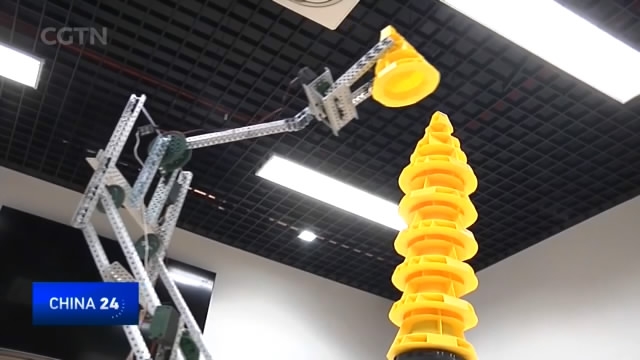
20:55, 06-May-2018
Getting Smarter: AI tech makes teaching and learning more interesting
02:08

China is bringing artificial intelligence lessons to classrooms across the nation. The move looks to help young Chinese students get a step ahead in what's already seen as a leading field of innovation. Zheng Chunying has the story.
Learning and teaching is getting easier and smarter. Growing and monitoring your own plants has become possible for students and for schools that don't have enough space for designated labs. Students can control the lighting, temperature and watering through cloud computing. And, students are filing real-time reports on the process to deepen their understanding on the advanced technologies being used.
ZHANG WEN CEO, SENSETIME "Combining the lab experience with theoretical concepts, this design can not only help students learn what's in the textbook, but also allow them to work on what they've learned and have real experience with AI technology."
Around forty high schools in Shanghai are bringing artificial intelligence to the classroom. The goal is to help students become competent in the field of AI. The learning materials co-developed by SenseTime and East China Normal University aim to help students learn and know how to cooperate with the technology.
In China, education has long been exam-oriented. Grades received in exams determine who is qualified for admission into secondary schools and universities. Several Chinese high schools have embraced the trend of AI-enabled education, and are using newer technologies to lead the charge.
CHEN YUKUN, DIRECTOR MOOC RESEARCH CENTER, EAST CHINA NORMAL UNIVERSITY "AI can quickly capture and analyze how students perform in the classroom in real time. Based on that, teachers can improve their teaching and delivery. This will inspire and transform current teaching formats."
As for now, the main applications of AI in China's education sector include work correction, voice recognition and adaptive learning.
Chen says more resources will be put into training AI subject-related teachers, building labs, and AI teaching facilities to meet the growing demand. Zheng Chunying, CGTN.

SITEMAP
Copyright © 2018 CGTN. Beijing ICP prepared NO.16065310-3
Copyright © 2018 CGTN. Beijing ICP prepared NO.16065310-3